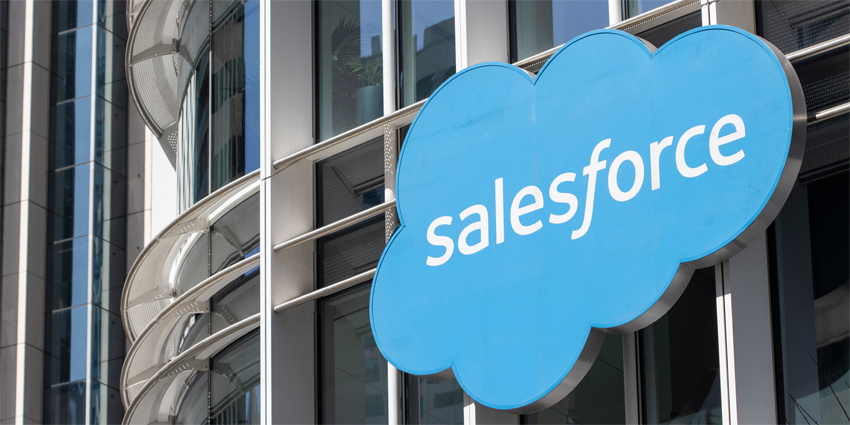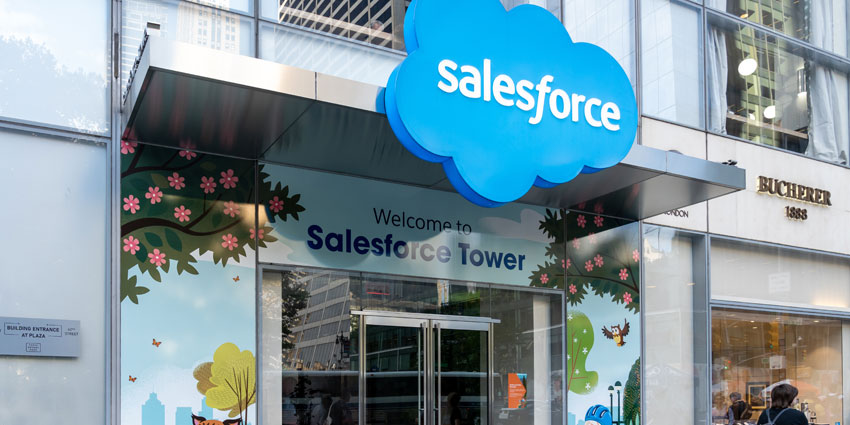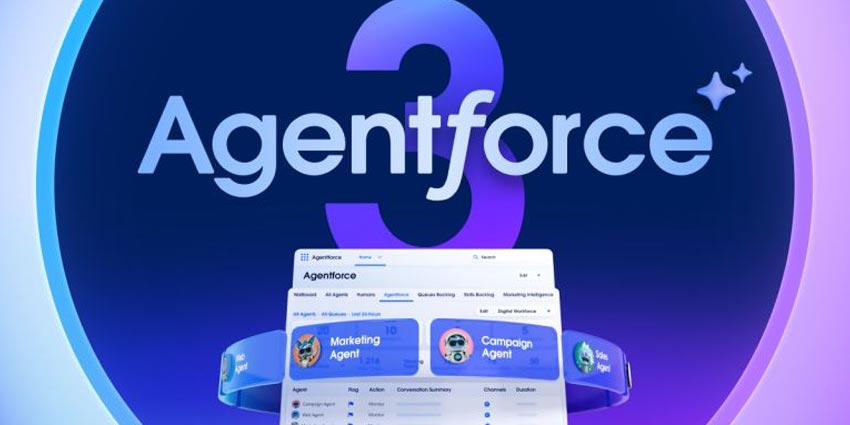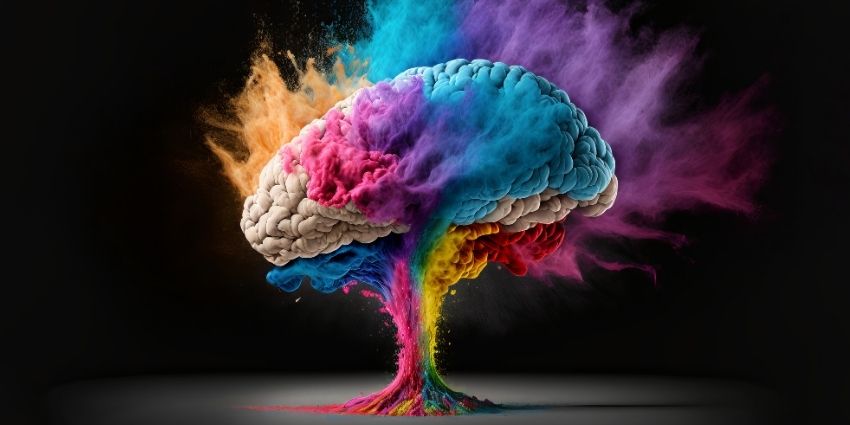“Great customer service solutions underpin great customer relationships,” claims Forrester at the beginning of its report.
Yet, the opposite is also true. Poor customer service tarnishes customer relationships, and – unfortunately – studies suggest service experiences are getting worse.
There are several possible reasons for this. Staff shortages, the explosion of new engagement channels, and rising expectations are just a few of the examples businesses often cite.
Thankfully, the technology to help service teams combat such issues is better than ever before.
Indeed, Forrester notes that tech vendors have recently expanded their capabilities to support customers via self-service and digital channels.
That principally involves aiding customer-facing employees as they assist customers.
Take a contact center agent. A customer service solutions provider will support them by spotlighting live performance insights, surfacing relevant knowledge articles in real-time, and automating tasks for them.
Meanwhile, supervisors may access new tech to oversee remote agent performance, identify training opportunities, and manage customer feedback.
However, Forrester’s summarization of “customer service solutions” goes beyond assistance alone.
How Forrester Defines “Customer Service Solutions”
A customer service solutions suite “enables organizations to serve and retain customers, reduce tech sprawl to manage cost, and modernize core applications,” according to Forrester.
The research firm then suggests customer service solution buyers should consider providers that:
- Provide a complete suite of customer service applications
- Assist agents in meeting SLA and quality targets
- Deliver better customer experiences with AI and automation
- Preserve business agility and resilience
- Leverage an extended ecosystem for customer service success
Each of the 12 vendors in the report meets these five critical requirements, and Forrester has split them into four categories: leaders, strong performers, contenders, and challengers.
To do so, the firm has evaluated each vendor across 39 criteria, split across three central themes: current offering, strategy, and market presence.
How Did the Vendors Perform?
Across the three evaluation themes, here are Forrester’s top five performing providers of customer service solutions.
Current Offering
- Pegasystems (4.35/5)
- Salesforce (4.21/5)
- Microsoft (3.87/5)
- ServiceNow (3.76/5)
- Oracle (3.45/5)
Strategy
- Salesforce (4.30/5)
- Microsoft (4.30/5)
-
- ServiceNow (4.10/5)
- Pegasystems (4.00/5)
- Oracle (3.30/5)
- 5. Zendesk (3.30/5)
Market Presence
- Salesforce (5.00/5)
- Zendesk (5.00/5)
- Microsoft (5.00/5)
- ServiceNow (4.00/5)
- SAP (3.00/5)
- Oracle (3.00/5)
- Pegasystems (3.00/5)
Alongside these scores, Forrester offers an overview of the 12 vendor’s portfolios and services. Below is a brief summary of each.
Salesforce – Salesforce Service Cloud (Leader)
Service Cloud is now Salesforce’s largest revenue-generating cloud. Much of its success comes from the depth of its native capabilities, “which support every type of service”. Yet, it also benefits from the broader Salesforce ecosystem – centralizing customer and behavior data, pairing it with AI, and augmenting the agent experience. Forrester recognizes this while isolating its new pricing strategy, extensive partner ecosystem, and roadmap as strengths. That roadmap fixates on enhancing self-service options and providing agents with deeper insights for better service.
Pegasystems – Pega Customer Service (Leader)
Pega Customer Service aims to automate and guide every contact center experience. The provider’s roadmap for doing so includes building out its composable architecture and AI capabilities. Forrester acknowledges this while highlighting the offering’s workflow automation and real-time decisioning as positives – alongside its “robust” case management and “versatile” agent desktop. Pega also puts forward flexible licensing options and a unique go-to-market that pulls service into its “autonomous enterprise” mantra. These aspects of its portfolio often attract large enterprise customers.
Microsoft – Microsoft Dynamics 365 Customer Service (Leader)
Microsoft Dynamics 365 Customer Service pulls in business, collaboration, and productivity applications from the expansive Dynamics platform for continuous innovation and optimization. As such, it often appeals to enterprises that leverage the broader Microsoft business application suite. Its strategy also supports a roadmap that focuses on AI for customer self-service, agent-assist, and operational efficiency – alongside omnichannel routing and workforce management. Finally, Forrester commends Microsoft’s GenAI innovation, vast partner network, and “comprehensive” channel support.
ServiceNow – ServiceNow Customer Service Management (Leader)
ServiceNow takes a resolution-centric approach to customer service, with a vision to orchestrate customer workflows beyond the front office. That vision drives a roadmap that includes packaged workflows, broader channel management, and improved self-service portals. Supporting this and its 4,000 “large” customers, ServiceNow has a burgeoning partner and talent ecosystem. Forrester identifies this as a core strength, alongside its “broad” self-service capabilities, “excellent” case management, and AI model that predicts resolution times to aid intraday management.
Oracle – Oracle Fusion Service (Strong Performer)
Oracle Fusion Service prioritizes automation as the first port of call for service resolution, with human augmentation when necessary. To aid that automation, Oracle aspires to add service capabilities to its industry clouds and other back-office products – pulling these platforms closer to its customer service platform. That will help Oracle customers to offer distinct experiences across sectors and types of interactions. Forrester also commends advanced self-service and knowledge management capabilities but warns that some customers find its reporting “cumbersome”.
Zendesk – Zendesk (Strong Performer)
Zendesk serves over 100,000 customers, enjoying “healthy” upmarket growth and a “significant” internal revenue share. The vendor’s intense focus on AI-driven customer service proactivity, personalization, and automation may have helped here. So could its strengths in usability and customization, broader channel support, and agent support bots. Zendesk has also streamlined its go-to-market, prioritized industries, simplified packaging, or maturing partner practices. However, Forrester highlights process management and communication around ownership as possible improvement opportunities.
Creatio – Service Creatio (Strong Performer)
Service Creatio is a fully composable, no-code customer service solution within the vendor’s unified CRM. As such, non-technical CX teams can lead digital transformation, personalization, and agent experience initiatives. Creatio’s roadmap doubles down on this differentiator, expanding on no-code capabilities, verticalization, and embedded AI. These complement its strengths in case and knowledge management, customer journey tracking, and its library of UI design elements. Nevertheless, Forrester spots gaps in its native chatbots, communities, and workforce engagement management (WEM).
Freshworks – Freshworks Customer Service Suite (Contender)
Freshworks’ customer service suite comprises Freshdesk and Freshchat, offering ticketing and chatbot capabilities, respectively. The vendor aims to bolster its proposition with an unwavering focus on autonomous service, targeting proactive contact prevention, self-service, and escalation use cases. Other roadmap priorities include quality assurance, scalability, and a GenAI-driven agent copilot. Its notable strengths include real-time conversational intelligence and post-purchase customer engagement. Yet, it’s typically best-suited to smaller, digital-first enterprises, as customers seek a more mature partner and support structure.
Verint – Verint Open CCaaS Platform (Contender)
Released in July 2023, the Verint Open CCaaS Platform includes the vendor’s hallmark WEM software, digital experience, and self-service. Yet, it allows brands to stitch these together and build workflows that balance specialized, single-purpose bots and agents – a strategy Verint will double down on in 2024. Indeed, the vendor plans to release 50-100 specialized bots in 2024. Forrester labels the strategy compelling, pinpointing strengths in its service dashboards, omnichannel routing, and global partner network. Although, the analyst warns that some customers heavily rely on professional services.
SAP – SAP Service Cloud (Contender)
The SAP Service Cloud aims to deliver “insightful, connected, and adaptable” service processes as part of the SAP CX portfolio. Its roadmap aspires to enhance its case management, agent desktop usability, and conversational intelligence while driving industry-specific innovation. Meanwhile, current plus points include real-time analytics, Microsoft Teams swarming, and integration with SAP ERP and S/4 HANA. However, Forrester cautions as to SAP’s lack of advanced AI-assist features, its “basic” digital engagement capabilities, and “limited” GenAI features.
Note – SAP did not participate in Forrester’s evaluation, which may have influenced its positioning.
Zoho – Zoho Desk (Contender)
Much of the innovation within Zoho Desk – part of the unified CRM suite – aspires to streamline interactions with omnichannel self-service and agent-assisted support. Its roadmap also reflects this aim with AI-driven guidance for agents, predictive analytics, and broader CCaaS and WEM integrations. Customers often praise its ease of deployment and cost-effectiveness, too, and these strengths have helped Zoho build a 100,000-strong install base primarily made up of SMBs. However, it lacks comprehensive digital support, quality management features, and reporting tools.
SugarCRM – Sugar Serve (Challenger)
Sugar Serve, part of SugarCRM’s unified CRM, strives to automate those simple, transactional interactions. The product’s roadmap demonstrates Sugar’s desire to enhance self-service further while improving its agent AI, reporting, and configurability. These build on a solid foundation with native digital channels and rules-driven case management. SugarCRM also boasts a global partner network, collaboration tools for swarming, and sector-specific solutions. Nevertheless, customers raised concerns about its innovation speed and marketplace size.
Why Did Forrester Select These 12 Customer Service Solution Providers?
Many tech vendors circle the customer service solutions space. Yet, Forrester narrowed the market for its evaluation by ensuring that each vendor offered a “multifunctional” app.
The app had to include case management, knowledge and content management alongside business intelligence, omnichannel capabilities, and WEM.
In addition, the participating customer service solution providers must:
- Have mindshare amongst Forrester clients
- Have at least $100 million in product revenue
- Offer a solution targeted to multiple industries
- Support multiple roles within customer service operations
With this vendor inclusion criteria, the research firm established the 12 vendors “that matter most” within the market.
Forrester also evaluated the vendors “that matter most” in the CCaaS market. To check out its latest report into that space, read our article: The Forrester Wave for CCaaS 2023: Top Takeaways







